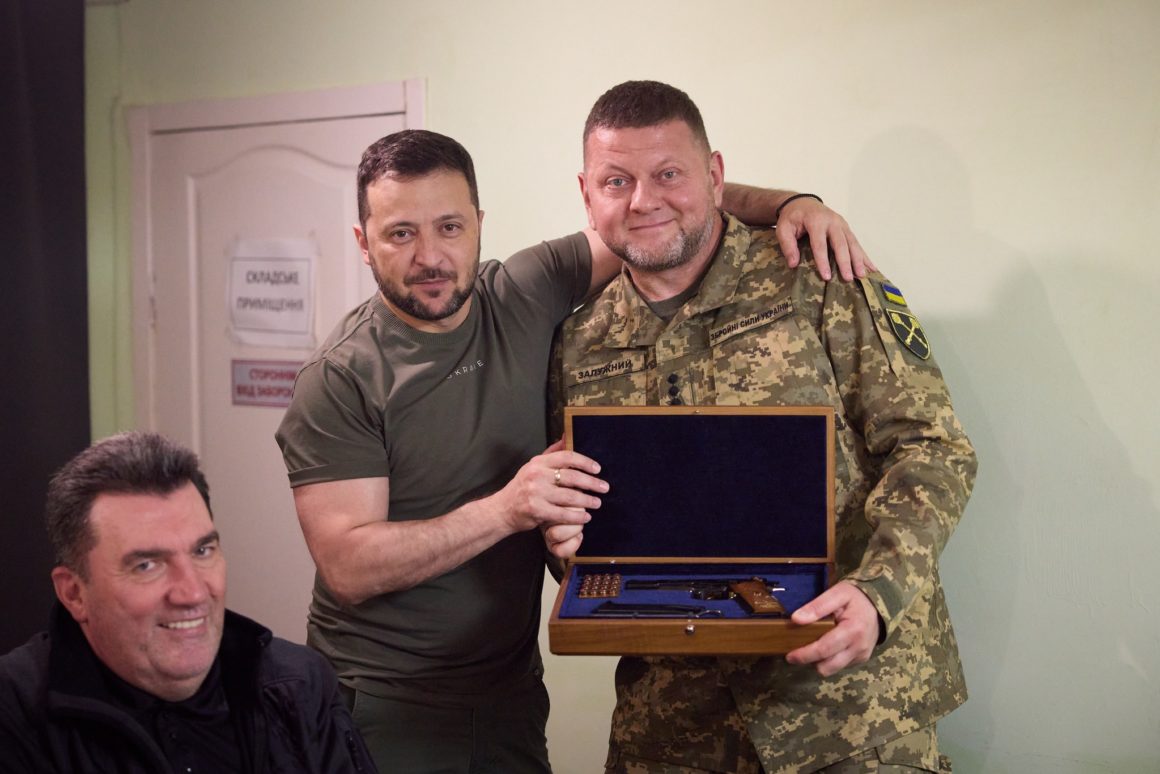Rumors have swirled for months about rising tensions between Ukrainian President Volodymyr Zelenskyy and General Valeriy Zaluzhnyi, the commander-in-chief of Ukraine's armed forces. Those rumors exploded on 29 January 2024, when several outlets reported Zelenskyy had met privately with Zaluzhnyi and asked him to resign. While no formal dismissal announcement ever came, the incident has spotlighted the growing rift between Ukraine's civilian and military leadership.
How did the rumors about Zaluzhnyi's dismissal spread?
On the evening of 29 January, information about President Volodymyr Zelenskyy allegedly dismissing Commander-in-Chief Valeriy Zaluzhnyi started circulating on social media, starting from anonymous Telegram channels associated with the President's Office. The information was immediately confirmed by various politicians and journalists from pro- and anti-Zelenskyy camps.
At 19:41 on 29 January, after 1.5 hours of silence from officials, during which chaos and tension flooded the Ukrainian media landscape, Ukraine's Ministry of Defense came out with a cryptic statement that "this is not true."
Then at 20:05, President Zelenskyy's spokesperson Serhiy Nykyforov informed Ukrainska Pravda that "the president definitely did not fire the commander-in-chief."
Finally, at 20:20 Zelenskyy released his daily address with no mention of either the meeting with the commander-in-chief or his dismissal, seeming to debunk the rumors.
This all prompted outrage about the irresponsible official communication, as well as sparked speculations about the real cause of the rumors.
Thus far, these hypotheses exist:
- It was the President's Office testing the waters on Zaluzhnyi's dismissal, discovering that this step would be widely unpopular with Ukrainians, and deciding to roll back;
- It was simply a leak of information from a closed meeting, with Zelenskyy rolling back the decision after the uproar;
- It was the President's Office priming public opinion for the eventual dismissal of Zaluzhnyi by creating "information waves" about this possibility;
- It was an information operation by Zaluzhnyi's fans who sought to prevent his dismissal by creating a public uproar.
So far, everything points to hypothesis #2, as numerous western media outlets, quoting unnamed sources, reported that a meeting was held and that a decision to fire Zaluzhnyi was made.
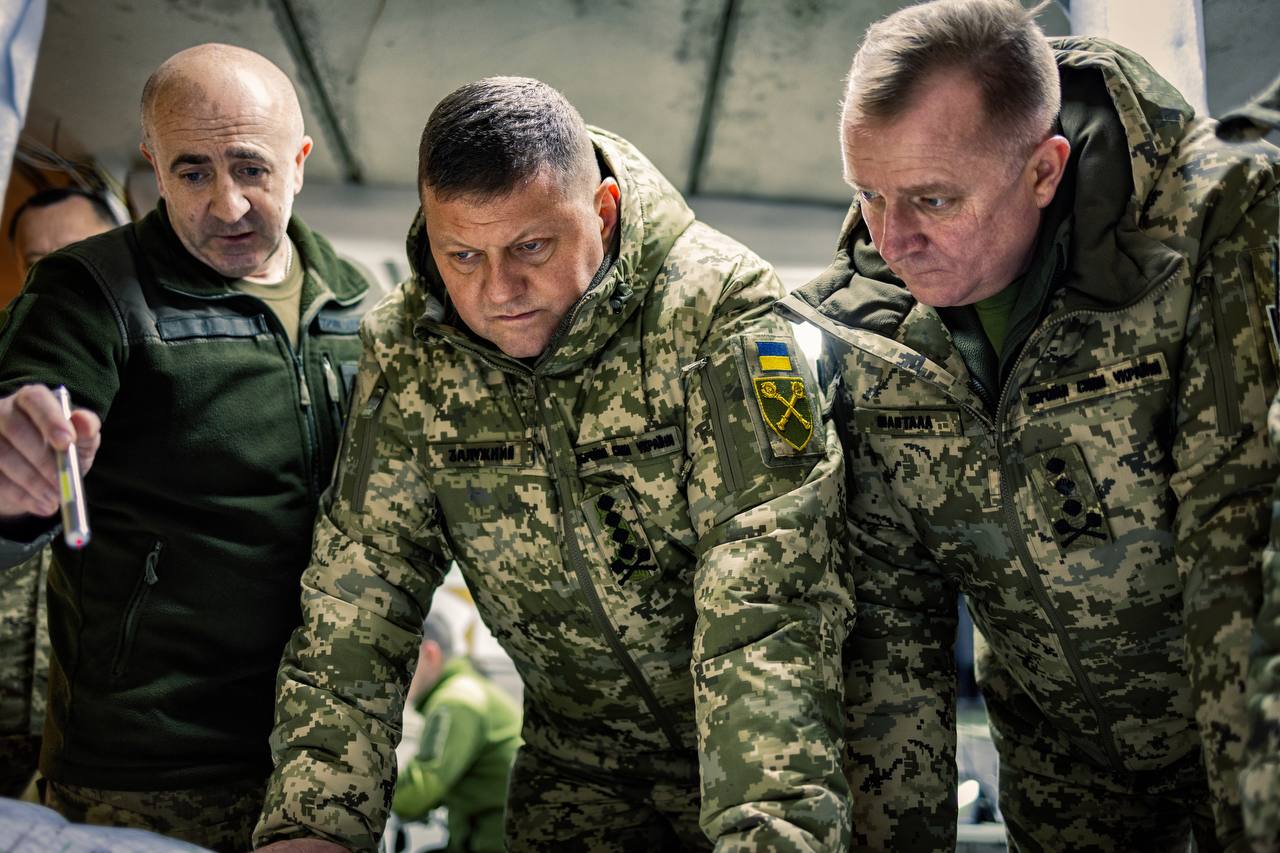
What happened at the closed meeting between Zaluzhnyi and Zelenskyy?
Here is the picture we were able to piece out from reports of various media outlets citing unnamed sources (the anonymity of sources is not surprising because few want to talk about a conflict that Ukraine desperately wants to hide).
As per the BBC, in the afternoon of Monday, 30 January, General Valeriy Zaluzhnyi was summoned to see President Volodymyr Zelenskyy. Zelenskyy purportedly wanted to discuss the situation on the frontlines with the commander-in-chief.
Zaluzhnyi immediately departed for Bankova Street. The meeting promised to be unusual – despite regularly gathering for commander-in-chief briefings, Zelenskyy and Zaluzhnyi had not spoken privately in some time. That day, presidential chief of staff Andriy Yermak was away in Uzhhorod negotiating with the Hungarian foreign minister.
Per BBC sources, the Bankova meeting involved three individuals – Zelenskyy, Zaluzhnyi, and Defense Minister Rustem Umerov.
Eyewitnesses told the BBC the discussion proceeded calmly at first. But soon, Zelenskyy came to the main point: he had decided to dismiss Zaluzhnyi as commander-in-chief. Zelenskyy added the firing decree would be signed shortly.
After 18:00, rumors of Zaluzhny's dismissal began circulating rapidly online.
As Dzerkalo Tyzhnia reported, Zelenskyy formally offered to make Zaluzhnyi an advisor or assistant, which the latter rejected. The general refused to write a resignation letter himself, saying appointing commanders was the president's role. The outlet also writes that Zaluzhnyi's potential resignation "is only the first link in a chain of personnel changes in the Armed Forces command and the country's political leadership."
The Economist reported, citing unnamed sources, that Zaluzhnyi was offered the position of National Security Council Secretary. BBC confirmed this proposal, adding that the general was also offered the position of ambassador to one of the European countries, which he declined.
The Financial Times said, citing four unnamed sources, that Zelenskyy offered Zaluzhnyi the position of defense advisor, but the general refused.
UK's The Times reported, citing three sources, including senior officers, that Zaluzhnyi was summoned to a personal meeting with Zelenskyy on 29 December. This was the pair's first meeting in a year and a half without the presence of Zelenskyy's advisors. The general told the president that his advisors' assessment of the military situation was "more positive than realistic."
Zelenskyy asked Zaluzhnyi to resign; when the latter declined, Zelenskyy informed he would sign a decree on his dismissal. The Times' sources also said that after Zaluzhnyi informed his subordinates that he was leaving, senior commanders and international partners, including the United States and the United Kingdom, expressed their concern, forcing Zaluzhnyi to make a U-turn.
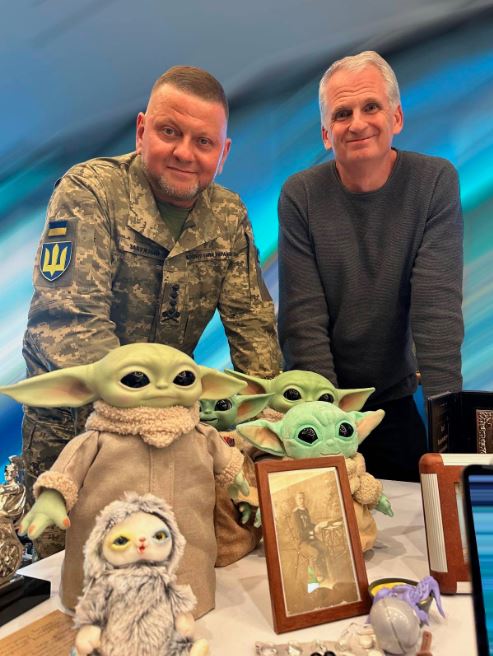
When did the conflict between Zaluzhnyi and Zelenskyy start?
Tensions between President Zelenskyy and Commander-in-Chief Zaluzhnyi have been escalating for months, with strategic and political rifts eroding their relationship.
According to Simon Shuster's book “The Showman,” before Russia's February 2022 invasion, Zelenskyy spurned border defense advice over panic concerns. This forced Zaluzhnyi to secretly ready forces, even hiding preparations from Zelenskyy.
In a lengthy piece about the Zaluzhnyi-Zelenskyy conflict, Ukrainska Pravda reports that the first signs of future tensions between Zelenskyy and Zaluzhnyi emerged in the spring of 2022, when Russian forces had not yet retreated from the capital Kyiv.
Back in March 2022, polls showed that while 93% of Ukrainians trusted Zelenskyy, 98% trusted the Ukrainian Armed Forces. Zelenskyy's team was concerned that the public personified the military not with the president but with Commander-in-Chief Zaluzhnyi.
"Andrey Yermak was the first person last spring to be worried about Zaluzhnyi’s potential ambitions,” a member of the presidential team who had access to the secure presidential facility told Ukrainska Pravda. "Andrey brought up Valera (short for Valeriy) every day, saying he has a foundation, he is very media-savvy, his team is full of 'Porokhobots' (supporters of former president Poroshenko, Zelenskyy's bitter rival), and more."
The first source of friction was Zaluzhnyi starting a charitable foundation named after himself. The president's office suspected the foundation could grow into a political party over time.
After unpleasant tensions with the political leadership, Zaluzhnyi consciously stayed away from the media spotlight, giving only a couple of interviews about the war over two years, exclusively to foreign outlets.
However, this did not help alleviate the president's office concerns about potential political competition from the commander-in-chief. Zelenskyy penetrated Zaluzhnyi’s military domain by establishing direct lines of communication with various service commanders, bypassing Zaluzhnyi in the chain of command, Ukrainska Pravda wrote. Meanwhile, Zaluzhnyi unintentionally entered the political domain.
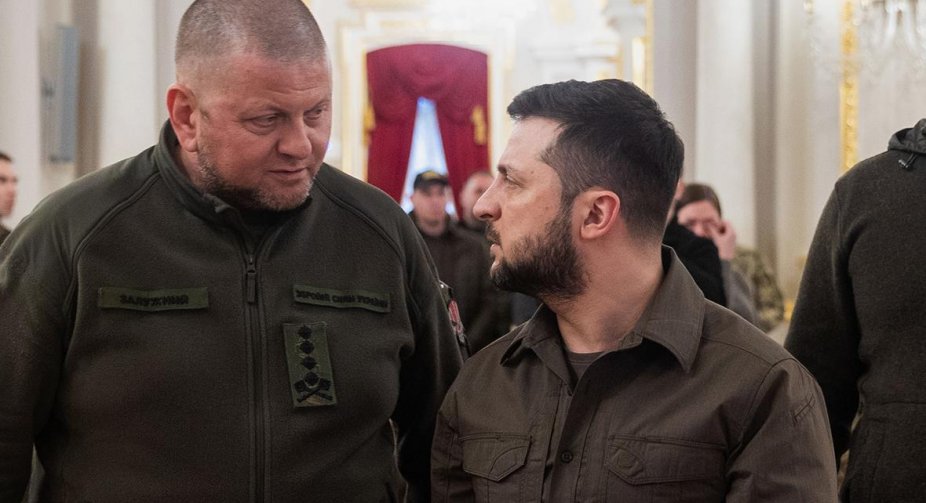
Polskie Radio writes that the next fissures emerged in the summer of 2022 over military strategy. Zelenskyy pushed Zaluzhnyi for fast counteroffensives to retake occupied areas like Kherson. But Zaluzhnyi advocated a gradual approach to avoid casualties, angering Zelenskyy.
While Ukraine's army was having success in 2022 with the Kherson and Kharkiv counteroffensives, the Zelenskyy-Zaluzhnyi conflict was kept at bay. However, the tensions grew after the Ukrainian summer 2023 counteroffensive in the south stalled, falling short of expectations set by optimistic rhetoric from the president's office.
In November 2023, their divide widened again after Zaluzhnyi's Economist article called the war a "stalemate" and said Ukraine needed a "technological breakthrough" to avoid deadlock. Zelenskyy publicly rejected this as defeatist and, in an interview with The Sun, warned militarymen against entering politics.
Another example of clashes over military strategy is the issue of mobilization. "The general has publicly pressed Mr. Zelenskyy to launch a large-scale mobilization of men; the president has resisted this, knowing it would be unpopular," Economist notes.
Political tensions drive the distrust.
Ukrainska Pravda cites unpublished polling data from the Rating group showing Zelenskyy receiving around 47% of votes in a hypothetical first round of a presidential election among those who have made up their minds.
The most striking graph in the unpublished poll shows Zelenskyy in a hypothetical run-off with General Zaluzhnyi, which the president could lose. Zelenskyy has no other real political competitors, so his words in an interview with The Sun warning military officials against politics were aimed primarily at Zaluzhnyi, Ukrainska Pravda notes.
Though Zaluzhnyi eschews politics and has no party or movement, his image as a defiant hero makes him a gravitational counterweight to Zelenskyy in the public mind.
The commander-in-chief enjoys popularity not only with the military, but with Ukrainians in general. 88% of Ukrainians said they trusted Zaluzhnyi compared with 62% who said they trusted Zelenskyy, a sociological poll by the Kyiv International Institute for Sociology (KMIS) from December 2023 found.
This perceived challenge to Zelenskyy's political dominance from an unelected figure is compounded by griping within Zaluzhnyi's camp about excessive presidential interference in military affairs.
In sum, strategic disagreements, security blunders, and Zelenskyy's paranoia about Zaluzhnyi's political capital have driven an ever-widening rift between Ukraine's civilian leadership and military command. This erosion of trust now jeopardizes Ukraine's wartime unity.
Why was Zaluzhnyi not fired on 29 January?
It appears there are two reasons.
1. Finding a suitable replacement poses a major challenge.
The two most commonly named candidates are Lt. Gen. Kyrylo Budanov, head of Ukraine's military intelligence, and Gen. Oleksandr Syrskyi, commander of the ground forces.
However, sources tell BBC that neither general is eager to occupy Zaluzhnyi's hot seat.
Any new commander-in-chief would be inevitably measured against Zaluzhnyi, who enjoys immense public admiration for battlefield exploits in Kharkiv and Kherson.
A recent poll by KMIS shows Zaluzhnyi with 92% public trust compared to just 60% for Budanov and 33% for Syrskyi.
It also found that 72% of Ukrainians oppose a possible dismissal of Zaluzhnyi.
This makes the role unappealing, as any successor would risk being seen as a political puppet rather than earning respect on merit.
Syrskyi boasts successes in Kyiv's defense and the Kharkiv counteroffensive. But the general's reputation for high casualties also makes him an uneasy choice to replace the revered Zaluzhnyi.
As per The Times, both Gen. Oleksandr Syrskyi and Lt. Gen. Kyrylo Budanov declined Zelenskyy's proposal to take Zaluzhnyi's seat.
Ousting such a wildly popular wartime commander would create instant backlash. And with no standout successor, Zelenskyy lacks an obvious replacement who can match Zaluzhnyi's clout with troops and citizens.
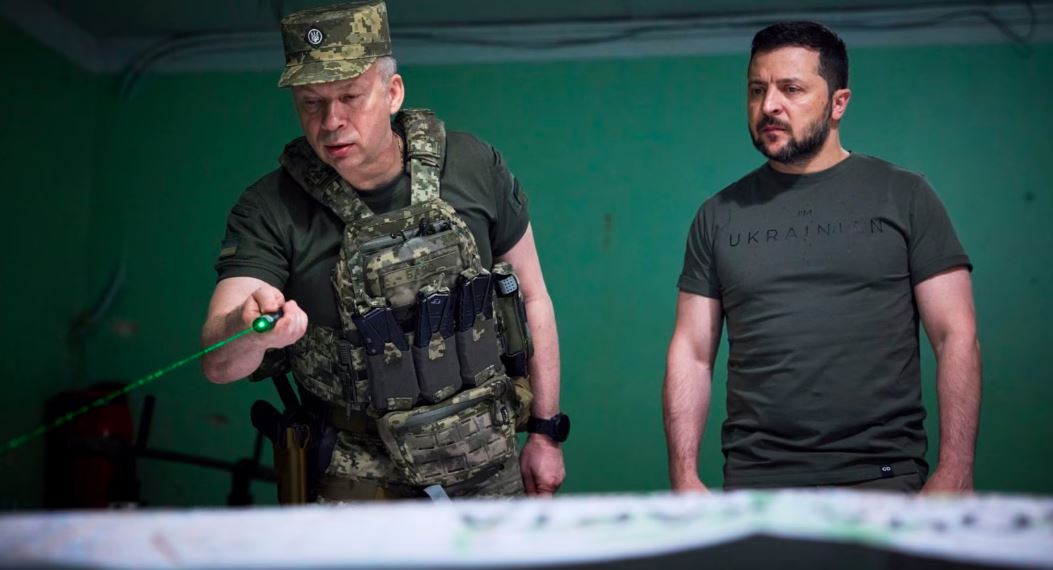
2. Ukraine's Western partners interfered
As per BBC, Kyiv's Western partners intervened in the situation, expressing their strong disapproval of Zaluzhnyi's resignation. It would have undermined critically important multi-billion financial aid tranches slated to be decided on in the nearest days. "The West appears to have sufficient leverage to insist on its position on this issue," BBC writes. This version is confirmed by three sources of The Times.
What's next for Zaluzhnyi?
Despite Zaluzhnyi's reported refusal to resign on 29 January, most experts believe his eventual dismissal remains likely given Zelenskyy's evident mistrust.
As per Financial Times, Zelenskyy told Zaluzhnyi he would be removed regardless of whether he accepts a minor position.
Financial Times' four sources said that "while a decision had been made in Zelenskyy’s office to dismiss Zaluzhnyi, he may not be ousted for some time after reports of the plans appeared in Ukrainian media.
Defense experts questioned by BBC also say the Commander-in-Chief's dismissal appears imminent:
"The number of disagreements between Zelenskyy and Zaluzhnyi has reached a critical point. And it seems that it's no longer just about views on the war and its future, but about purely personal differences between these, to be honest, completely different people, and the lack of trust between them, which is essential to avoid losing the war unleashed by Russia," BBC writes.
But ejecting the popular Zaluzhnyi mid-war also entails serious risks of triggering troop/public backlash.
Many analysts caution that firing Zaluzhnyi, revered by troops for victories in Kharkiv and Kherson, risks damaging morale and unity at a precarious point in the war. It could also unsettle Ukraine's Western backers when Kyiv desperately requires expanded military aid.
Yet keeping Zaluzhnyi while tensions fester may also undermine the coordination between the military and Zelenskyy's office needed to go forward with the war.
Ironically, many Ukrainian experts believe that if Zaluzhnyi resigns, he will automatically become a political heavyweight, and a favorite for any election, whenever it is scheduled, meaning that the politically paranoid Zelenskyy would shoot himself in the foot.
With Russia ramping up mobilization amid heavy fighting on the front and Western aid in the air, Ukraine can ill afford power struggles among top brass. Zelenskyy and Zaluzhnyi face intense pressure to resolve differences and preserve Ukraine's fragile wartime unity.
This article was updated to include additional details from The Times. The evaluation of hypotheses was also changed
Related:
- Ukraine moves to plug loopholes, demand equal sacrifice in mobilization
- Zelenskyy announces change in strategy after the article by Ukraine's top general Zaluzhnyi, where he described key challenges - Published on Nov 5, 2023
- Zelenskyy responds to Zaluzhnyi's article: No stalemate situation
- Top Ukrainian general says Ukraine already hit occupied Crimea with ATACMS missiles
- Ukraine's Commander-in-Chief reveals his strategy to defeat Russia

